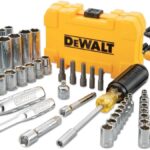Whether you buy a new car or a used car, with any vehicular purchase you’re also taking on the responsibility of any issues and mechanical problems that can, and often will, occur. In the current climate, with the economy in tatters, the last thing you want to be worried about is if your car is going to start or not.
So, we’ve cobbled together a few of the most common mechanical issues with modern cars and how you can avoid them without having to shell out a small fortune at the local garage.

New or Old Cars?
Naturally, when you are buying a new car you should have confidence that the car will cost less in repairs. After all, everything is factory fresh and probably covered under warranty, right? However, a brand-new car is going to cost significantly more than a comparable second-hand car. Indeed, new cars are notoriously poor investments as they lose a large chunk of their value the moment they’re driven off the forecourt.
On the other hand, second-hand cars are cheaper, but they are also more prone to needing repairs due not only to age but to potential lack of care. If you choose to buy a used car, we recommend buying from a reputable dealer that will often provide a warranty and plenty of expert advice.
Also Read:
- What is Magneto Ignition System and How It Works?
- How Battery Ignition System Works?
- What is Clutch and How It Works
Alternator or Battery?
The alternator is a common fault, but there is often confusion over whether it’s the alternator that is faulty, the car battery issue. Naturally, batteries will degrade in efficiency over time and will need to be replaced, whereas alternators work to charge the battery as your wheels spin. This means a flat battery could signify either an alternator or a battery issue. Or both.
If your car is failing to start due to low battery power, the first step should be to get it started by hook or by crook (if you can) and then take it on a long drive of at least 30 minutes to give the alternator time to top the battery up. If your battery is still running flat after this drive, the alternator is likely to be not charging properly and you will need to get it replaced or fixed.
Gearbox or Clutch?
Your car’s gearbox is a mechanical marvel with dozens of intricate parts working together in perfect harmony. As with anything this complicated, however, it can wear over the years. Your gears may begin to slip or grind as the years pass by, especially if you‘ve not been treating it all that well.
To alleviate this common car problem, ensure you press the clutch fully to the floor when driving to avoid wearing the gears and the clutch. Also, get into the habit of taking your foot fully off of the clutch when not in use so you don’t let it ride. Resting your foot on the clutch pedal can cause it to wear much faster. And once the clutch goes, you’re really in trouble!








